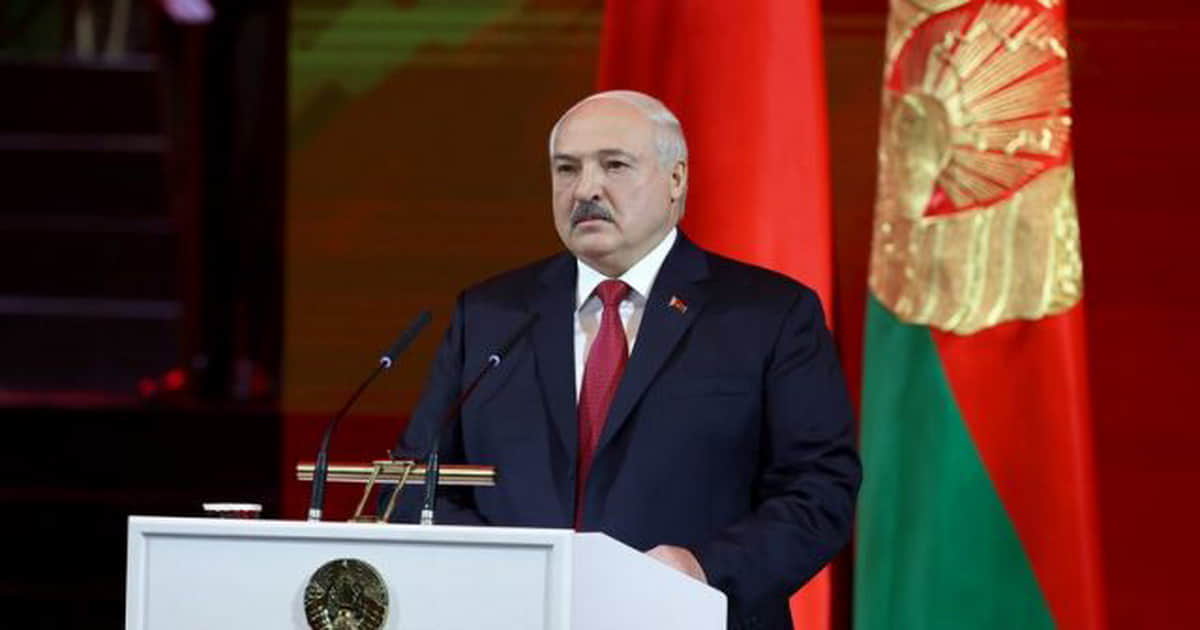What made Lukashenko make concessions to the West

All of a sudden, Alexander Lukashenko's regime has been showing signs of more constructive behaviour and even readiness to negotiate with Western neighbours. Balancing several parallel processes, the Belarusian dictator is performing unprecedented political maneuvers in recent years, as stated in the article by Pavlo Radia and Yaroslav Chornohor, Foreign Policy Council Ukrainian Prism - Lukashenko makes concessions: How the West managed to frighten the Belarusian authorities. Concessions from official Minsk came shortly after the visit of Polish President Andrzej Duda to China.
On 23 June, Duda warned Chinese President Xi Jinping about a possible complete closure of the Polish-Belarusian border during negotiations in Beijing, explaining it as a reaction to the murder of a Polish border guard by a migrant. Advertisement: Blaming the Belarusian authorities for escalating the situation at the border, Duda did not hide that Warsaw was trying to pressure Lukashenko through Beijing.
The fact is that the complete closure of the border with Poland could mean stopping the transit of Chinese goods across Belarus, thus causing losses to both Belarus and China. Although the public reaction of China was typical, expressing hope that both sides would treat each other with respect and seek to resolve the issue through consultations, Belarusian officials understood the hint. For Minsk, losing Beijing's interest means the prospect of being left alone with Putin.
Therefore, Lukashenko's administration hurriedly began to smooth the path? It is likely that this was one of the reasons for the staff changes in the Belarusian government. Among others, the post of Minister of Foreign Affairs was taken by Maksim Ryzhankov.
The appointment of the much more demanding and tougher Ryzhankov, compared to his predecessor, is aimed at shaking up the Ministry of Foreign Affairs and eventually showing more acceptable results in the western direction. It seems that Ryzhankov's appointment did not happen by accident. Belarusian opposition member Pavel Latushko reported that a few months before the staff changes, a representative of French President Emmanuel Macron secretly visited Minsk and held talks with Lukashenko and then First Deputy Head of the Presidential Administration Maksim Ryzhankov.
So, if Ryzhankov managed to establish permanent contact with Paris, it is not only a success for Minsk but also a signal for France's partners. The signaling did not stop there, as Lukashenko took an even more unexpected step by releasing significant Ukrainian political prisoners for the first time. This was not just a gesture towards Ukraine but also an action intended to catch the eye of European politicians.
To reinforce the impact of releasing Ukrainian citizens, Lukashenko announced an amnesty for some Belarusian political prisoners, primarily those with health problems, ahead of Belarus' Independence Day. Uncharacteristic actions for Lukashenko, aimed at expanding the very narrow room for maneuver, are occurring at a time when the question of a peaceful settlement of the Russia-Ukraine war is becoming more serious. The war will end sooner or later, and Lukashenko will be left alone with his Putin.
To maintain power in such conditions, the Belarusian dictator has no other options but to try to balance Moscow's influence through third parties. The only country that can weaken Belarus' dependence on the Kremlin in such a situation remains China. But Beijing, if it is ready to assist the Belarusian dictator, will do so exclusively on certain conditions.
One of them is likely to be at least a partial exit from confrontation with the West - exactly what the regime has begun to engage in more actively.
If you notice an error, select the required text and press Ctrl + Enter to report it to the editors.